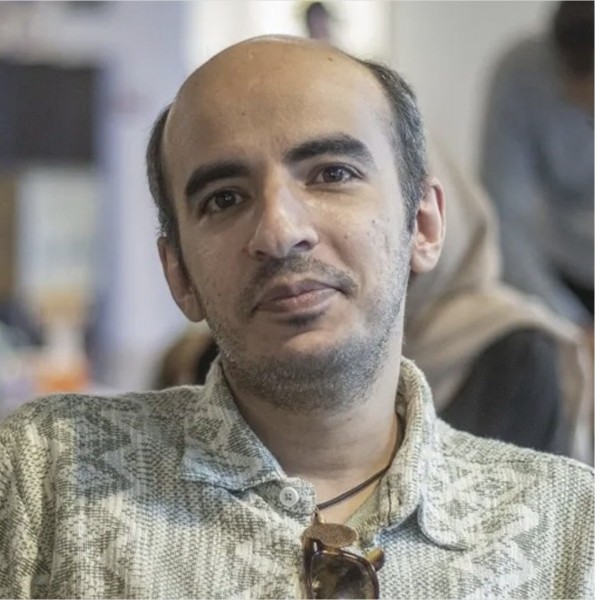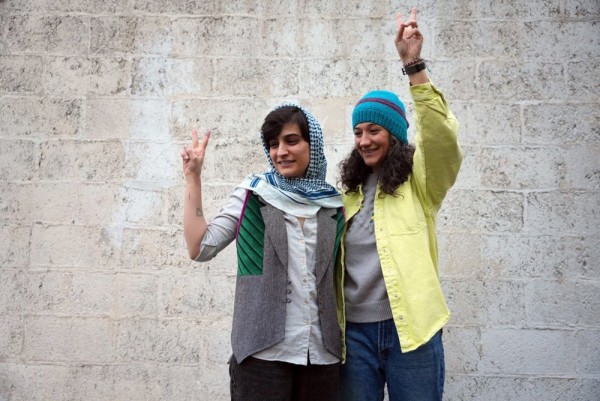Iran has begun a widespread campaign of terror against independent media ahead of a 2 March parliamentary election.
Amnesty International this week reported on the arrests of 12 journalists and social media activists, while the BBC’s Persian service confirmed that the Iranian government was continuing to pressure it by taking family members of its London-based staff hostage.
Saeed Kamali Dehghan, who covers Iran for the Guardian newspaper, told the International Press Institute (IPI) that the recent wave of arrests “shows that Iran is very worried about the upcoming election and about a possible reoccurrence of what happened in 2009”, referring to mass protests that followed a disputed presidential election.
Iranian authorities have already raised the spectre of foreign intervention in Iran’s domestic politics. Amnesty quoted Iran’s minister of intelligence, Heydar Moslehi, as saying in early January that authorities had detained several “election disruptors” who were “trying to carry out U.S. plots against the ninth parliamentary election process through virtual and social networks”. It is not known whether he was referring specifically to the arrested journalists.
The UK’s BBC Persian service is bearing the brunt of Iran’s assault on the media. According to the Iranian opposition website IranGreenVoice via Radio Free Europe/Radio Liberty, authorities this week detained the sister of a BBC Persian reporter and held her in Tehran’s Evin prison until the reporter agreed to be interrogated via Internet from London. (BBC Persian has said it has “no staff whatsoever” in Iran.)
This appears not to have been an isolated incident. The director of the BBC World Service, Peter Horrocks, said in an editorial last October that family members of at least 10 BBC Persian staffers had been intimidated, threatened, or arrested by Iranian authorities.
Iran’s efforts to portray BBC Persian as a mouthpiece for alleged foreign interventionists were underscored by a report released yesterday from the International Campaign for Human Rights in Iran, which asserted that Iran was pressuring a number of the recently detained journalists to admit connections to the BBC. The report said the information came from a source “close to the families” of the journalists; another source told the Campaign that “[a]t least one of the recent detainees is under tremendous pressure to admit to connections to the BBC on camera”.
The Guardian’s Dehghan told IPI that the reports of televised confessions “indicate that this is a targeted campaign of harassment against journalists, particularly those accused of working for the BBC”.
The arrests documented by Amnesty and referenced by the Campaign occurred between 28 December, 2011 and 20 January, 2012. Among the 12 are journalists, prominent sociologists who are also independent writers, and the director of a professional networking website called u24. Amnesty believes at least four are being held in Evin Prison; at least one, editor Peyman Pakmehr, has been released on bail.
IPI Press Freedom Manager Anthony Mills said: “The Iranian government must immediately stop its persecution of independent voices — both within Iran and elsewhere. Holding family members or reporters hostage as an intimidation tool is not only a gross violation of press freedom, but also a blatant violation of other fundamental human rights.”
The BBC’s Persian service was launched in January 2009. But it quickly earned the ire of the Iranian authorities for its coverage of the controversial 2009 presidential election. According to the previously referenced Campaign, a September documentary broadcast by the BBC about Ayatollah Khameini, Iran’s Supreme Leader, significantly worsened relations. Six filmmakers were arrested by Iranian security forces on the day of the documentary’s release for allegedly cooperating with the BBC, the Campaign said.
In his October editoral, Horrocks said that jamming of the BBC’s transmission by Iranian authorities had increased after the documentary was aired. Other foreign broadcasters with Iranian language services, including Voice of America and Deutsche Welle, have also been repeatedly jammed.
The 12 individuals arrested over the past month are journalists Esmail Jafari, Shahram Manouchehri, and Marzieh Rasouli; sociologists Ehsan Houshmand and Saeed Madani; Fatemeh Kheradmand, a writer on social issues; Parastou Dokouhaki, a former journalist with the now-banned magazine Zanan; former student leader and journalist Said Razavi Faghih; Peyman Pakmehr, the editor of the Tabriz News website; and Mohammad Solimaninia, director of u24.


